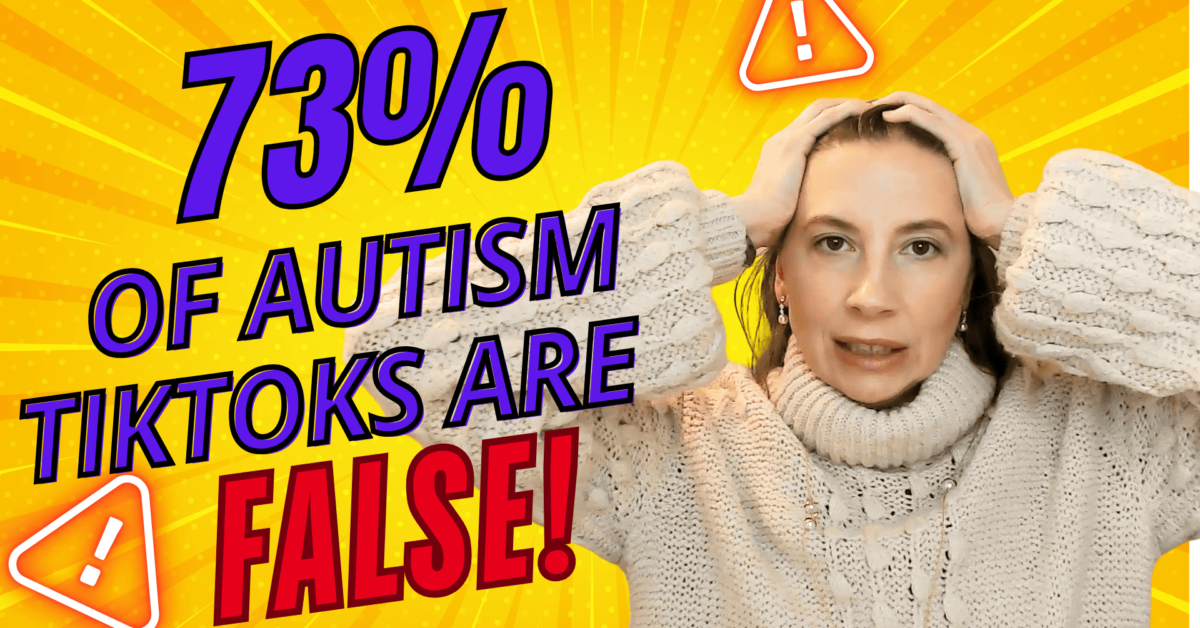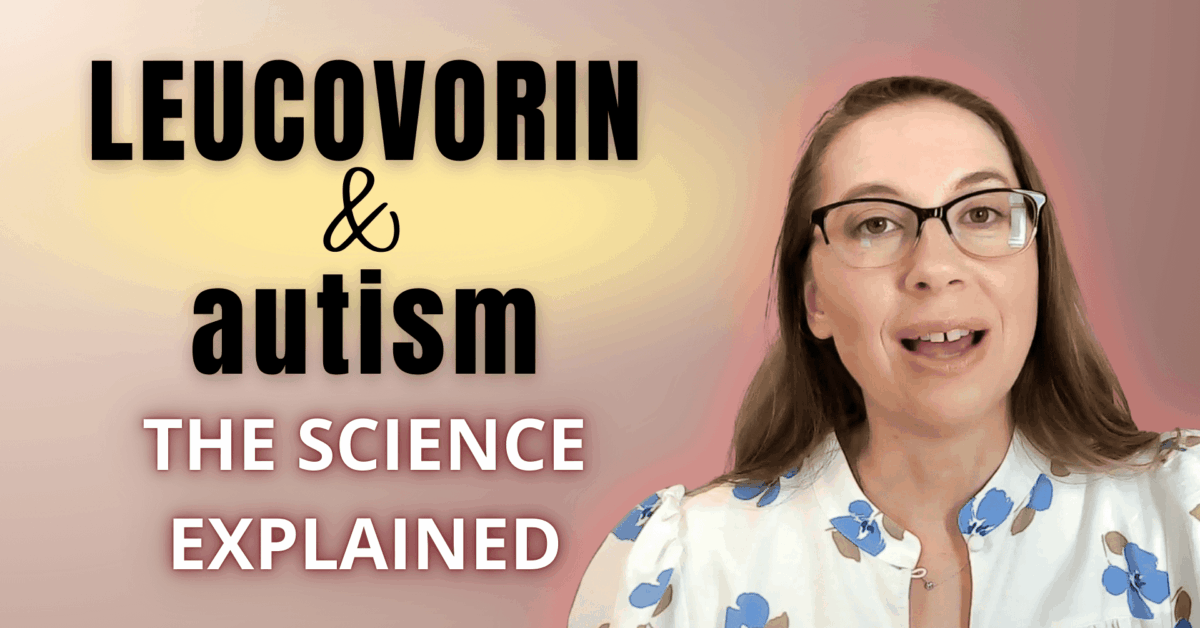Stop scrolling. This might be the most important thing you read today. Did you know that a scientific study found that nearly half of the autism content on TikTok is misleading, yet millions of people treat it like a trusted source?
Today, we are exposing the truth, and trust me, you do not want to miss this.
Is TikTok trustworthy?
Okay, so here’s the deal. TikTok has taken over autism conversations. Hashtags like autism and neurodivergent have billions of views. It’s a powerful platform, we all know that where people share experiences. But there’s a catch. A recent scientific study analyzed the top 133 autism-related videos on TikTok. Guess what? Only 27% of the answers were entirely accurate!
That means the majority of autism-related videos on TikTok are wrong. 73% of autism videos on TikTok are wrong or overgeneralized. Let that sink in for a moment. Is that where you’re getting your information from? Think about it.
Some of these wild claims that are on TikTok are that if you don’t like loud noises, you must be autistic. No, that’s not how autism works. If you stim, you have autism. Again, totally not true. Another wild claim is that Leucovorin is some kind of miracle treatment and has no research backing it. So NOT true.
So why is misinformation a problem?
Because TikTok’s algorithm doesn’t care about accuracy; it cares about engagement. So the more shocking, the more emotional or relatable a video is, the more it spreads, whether it’s right or wrong. So, when a video has a lot of views and likes, it doesn’t mean that it’s trustworthy information.
Viral ‘infection’
But here’s something even scarier from the study. Health professionals and researchers, the ones actually sharing accurate information, had the lowest engagement. Meanwhile, misleading videos are the ones going viral.
So, parents are making decisions for their children based upon a video that is popular, so you would think, okay, it must be accurate. But it’s not. Most times, it is not. The most watched autism content is often the least accurate. People are making serious life decisions based on TikTok videos and TikTok trends.
How to spot bad autism advice on TikTok
Let’s play a game. Is this autism advice fact or nonsense?
If you hyper-fixate on things, you’re autistic.
Nonsense. Even just being passionate can cause hyperfixation. It’s not an autism diagnosis.
Autistic people don’t have empathy.
The biggest nonsense of all. Many autistic people have deep empathy. They just may express it differently. Issues with communication are many times what people mistake for not caring. Many people with autism have dyspraxia, meaning that it’s very hard to control their bodies. So it might look like they don’t care, but it’s actually an issue with body control, not empathy.
All individuals with autism have an intellectual disability.
Wrong again. Many times, communication issues are what prevent a person with autism from fully expressing their intelligence.
I’m sure you’ve seen other nonsense on TikTok. I haven’t even gotten into the “My child just started talking, and I give him this Lion Mane drops only three times a week”.
Nonsense, nonsense. Okay? A few drops three times a week is not going to take a child who is nonspeaking to speaking. They’re trying to sell you a product. They’re trying to tap into their emotion, and they’re doing a very good job.
Don’t let them manipulate your emotions and your love for your child.
How to find real autism information?
So TikTok isn’t always reliable, right? It’s actually always more unreliable than reliable. So where should you go for accurate autism information?
Follow the science
Here’s what I recommend. Follow real experts. Look for autistic advocates, doctors, and autism researchers, not just influencers. It’s great to see someone’s perspective on their child, but you want to go straight to the research.
That is the reason why I have made this website all about scientific information. I’m not giving my opinion except in Opt or Drop articles or when someone asks me for my opinion on live streams and things like that. I present you with the science, and you have to take that information and make the best decisions for your child with it.
Check multiple sources
But you need accurate and cutting-edge information. Check multiple sources. If one TikTok video says one thing and a medical researcher says another and a medical researcher is someone you trust and someone who’s on the cutting edge of autism research themselves, start to trust the science. Go get more opinions, engage with critical thinking,
Why do we listen to misinformation
I know it’s hard. I remember at the beginning of our autism journey, my goodness, it was very emotional. So I can understand – you see something changing in one child, and you’re like, “I want that for my child”. Right? It comes from love, where you get very emotional, and you’re willing to try anything.
Think critically
But take a step back and try to think critically. If a TikTok video is making big claims with no sources. Right. It’s probably misleading.
Check credibility
And a lot of things I like to do is I like to look at the comments. And there are comments where people are like, yeah, me too, me too. That happened to my child. And you click on them to go see their profile, and they’ve put like two videos up. I’m like, I don’t think that’s a real account. You know, there are all these different bots and stuff like that.
So, really start to think critically about the video you just saw. And I do know it’s hard. I understand that. I totally understand that. But find people that you trust who are on the cutting edge of research so you can get quality information.
TikTok: Awareness vs misinformation
Remember, personal stories are valuable, but that doesn’t replace research because what happened for one child might not necessarily happen for your child. There are all different root causes for autism, and that’s really what you want to understand. That’s what will help your child the most.
And please just never make big health decisions based upon one TikTok video that might be 50 seconds or something like that. The bottom line is that TikTok is an incredible space for autism awareness, but it’s also a breeding ground for misinformation. The scientific literature has documented that the majority of the videos are wrong or overgeneralized. The key is knowing the difference.
Overwhelmed by all the autism information out there? You’re not alone. But here’s the thing. Understanding the science is what truly makes the difference. That’s exactly what I do on the Navigating Awetism platform. I break down the latest research into clear, actionable steps so you can confidently make the best decisions for your child. Click the link to see how we could work together.




